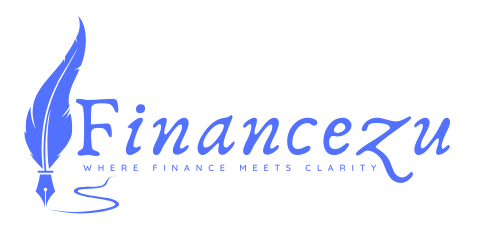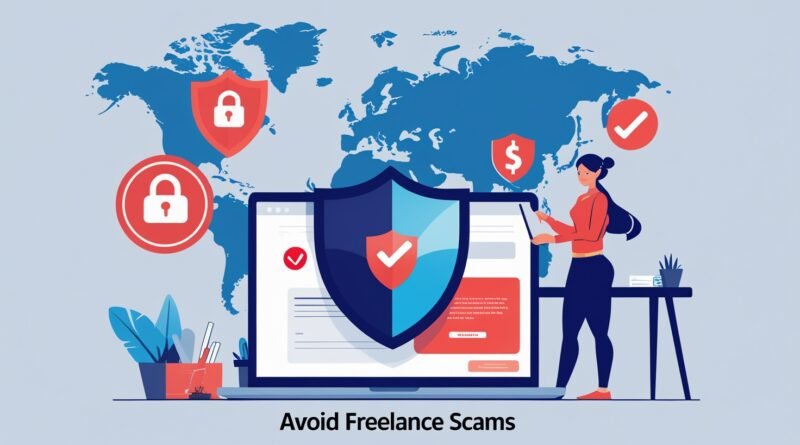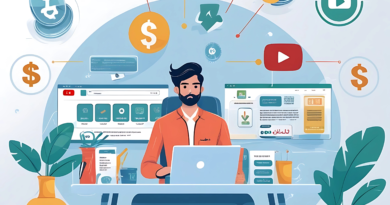How to Avoid Freelance Scams & Stay Safe Online
Freelancing offers incredible opportunities for professionals to work flexibly, connect with global clients, and build a career on their terms. However, the rise of online freelance platforms has also led to an increase in scams targeting both freelancers and clients. From fake job postings to payment fraud, the risks are real—but they’re avoidable with the right knowledge. This 2000-word guide explores freelance safety tips, how to avoid scams online, and strategies for secure freelancing in 2025. Whether you’re new to freelancing or a seasoned pro, these actionable steps will help you protect yourself and thrive in the digital marketplace.
The Growing Risk of Freelance Scams in 2025
The freelance economy is booming, with platforms like Upwork, Fiverr, and Freelancer connecting millions of professionals to clients worldwide. According to recent estimates, over 70 million Americans freelanced in 2024, a number that continues to grow. But with this growth comes a darker side: scammers exploiting the anonymity of online platforms. Common scams include fake clients requesting free work, phishing attempts, and payment fraud. A 2023 report by the Better Business Bureau noted a 20% rise in online job scams, many targeting freelancers. Staying safe requires vigilance, awareness, and proactive measures. Let’s dive into how you can protect yourself.
Understanding Common Freelance Scams

1. Fake Job Postings
Scammers often post fake gigs on platforms, offering lucrative pay to lure freelancers. Once you apply, they may ask for upfront payments, personal information, or free “test” work that they never pay for. For example, a client might claim they need a sample article before hiring, only to disappear after you deliver.
2. Payment Fraud
Payment scams are rampant, including fake PayPal invoices, bounced checks, or clients refusing to pay after work is delivered. Some scammers impersonate legitimate clients, promising payment through unofficial channels, only to vanish once the work is submitted.
3. Phishing and Identity Theft
Phishing emails or messages posing as freelance platforms can trick you into sharing login credentials or personal details. These scams often lead to identity theft, with scammers using your information to open accounts or steal funds.
4. Overpayment Scams
In this scam, a client “accidentally” overpays for a project and asks you to refund the excess amount—often before the original payment clears. Later, you discover the initial payment was fraudulent, leaving you out of pocket.
5. Fake Platform Communication
Scammers may contact you outside the platform, claiming to be from Upwork, Fiverr, or Freelancer support. They might ask for sensitive information or direct you to fake websites designed to steal your data.
Freelance Safety Tips to Avoid Scams

1. Research Clients Thoroughly
Before accepting a project, vet the client. Check their profile on the platform for verified payment methods, reviews, and a history of completed projects. On Upwork, look for clients with a Job Success Score (JSS) and verified billing. If the client is new or unverified, proceed with caution. A quick Google search of their name or company can also reveal red flags, like complaints on forums or scam reports.
2. Stick to Platform Communication
Most legitimate platforms encourage keeping all communication within their ecosystem. This ensures there’s a record of your interactions, which can be useful if disputes arise. For example, Fiverr’s messaging system tracks all conversations, and Upwork offers secure video calls. If a client insists on moving to email, WhatsApp, or another platform immediately, it’s a potential red flag.
3. Avoid Upfront Payments or Fees
Legitimate clients rarely ask for upfront payments to “secure” a project. If a client requests a fee to start work, claims it’s for software access, or asks you to buy gift cards, it’s likely a scam. Similarly, never share your bank details or pay for a job opportunity—freelancing should cost you nothing upfront.
4. Use Milestone Payments
For larger projects, break the work into milestones and request payment at each stage. Platforms like Freelancer and Upwork support milestone payments, releasing funds only after the client approves each phase. This protects you from delivering an entire project without payment. If a client refuses milestones and insists on paying only at the end, reconsider working with them.
5. Verify Payment Methods
Always confirm the payment method is legitimate. On platforms, check if the client has a verified payment method linked to their account. If they suggest paying outside the platform (e.g., via direct bank transfer or cryptocurrency), be wary—platform escrow systems are designed to protect you. For off-platform work, use secure payment methods like PayPal or Stripe, and never accept checks without verifying their authenticity.
6. Protect Your Personal Information
Never share sensitive information like your Social Security number, bank account details, or passwords with clients. Scammers may use phishing emails to trick you into clicking malicious links—always verify the sender’s email address. For example, a legitimate Upwork email will come from an @upwork.com domain, not a generic Gmail account.
7. Trust Your Instincts
If something feels off, trust your gut. Unrealistic offers, pressure to work quickly, or vague project details are warning signs. For instance, a client offering $5,000 for a simple blog post with no clear instructions is likely too good to be true. When in doubt, decline the project and report suspicious behavior to the platform.
Platform-Specific Safety Features
Upwork
Upwork offers robust safety tools, including payment protection through its escrow system. The platform’s Job Success Score and Top Rated badges help identify reliable freelancers and clients. Upwork also has a dispute resolution process if payment issues arise. Always check for verified payment methods and avoid clients who push for off-platform communication.
Fiverr
Fiverr holds funds in escrow until the buyer approves the work, reducing the risk of non-payment. However, its gig-based system can attract low-quality clients. Stick to Fiverr’s messaging system, and be cautious of buyers requesting extensive revisions beyond the gig scope. Fiverr Pro clients are vetted for reliability, so prioritize them if possible.
Freelancer
Freelancer’s milestone payment system ensures you’re paid for completed phases. The platform also offers a dispute resolution team. However, its large user base can attract scammers, so always check client reviews and avoid bidding on projects that seem suspicious. Freelancer’s contest feature can be risky—only participate if you’re confident in the client’s legitimacy.
Tools and Practices for Secure Freelancing
1. Use a Dedicated Work Email
Create a separate email for freelancing to avoid exposing your personal email to scammers. Use a professional address (e.g., yourname@yourdomain.com) and enable two-factor authentication (2FA) to secure it. Avoid clicking links in unsolicited emails claiming to be from clients or platforms.
2. Install Antivirus Software
Protect your devices with reliable antivirus software to guard against malware and phishing attempts. Tools like Norton or McAfee can detect malicious links or downloads. Keep your software updated to stay ahead of new threats.
3. Use a VPN for Public Wi-Fi
If you work from public Wi-Fi, use a virtual private network (VPN) to encrypt your connection. Services like NordVPN or ExpressVPN prevent hackers from intercepting your data, especially when submitting work or accessing payment platforms.
4. Monitor Your Accounts
Regularly check your bank accounts, PayPal, and platform profiles for unauthorized activity. Set up alerts for transactions to catch suspicious behavior early. If you suspect a breach, report it to the platform and change your passwords immediately.
5. Educate Yourself on Scam Trends
Stay informed about the latest scam tactics by following blogs, forums, or X posts from the freelance community. For example, recent X discussions highlight a rise in fake clients posing as startups, offering equity instead of payment—a common scam to avoid.
What to Do If You Encounter a Scam
1. Stop Communication
If you suspect a scam, cease all communication with the client. Do not share additional work or personal information. Block their account if possible to prevent further contact.
2. Report to the Platform
Most platforms have reporting mechanisms. On Upwork, use the “Flag as Inappropriate” option for suspicious job postings. Fiverr allows you to report buyers through their support ticket system. Freelancer has a “Report” button on client profiles. Provide detailed evidence, like screenshots of messages, to support your claim.
3. Contact Payment Providers
If you’ve shared payment details or sent money, contact your bank or payment provider (e.g., PayPal) immediately to report the fraud. They may be able to reverse transactions or freeze your account to prevent further losses.
4. File a Complaint
Report the scam to authorities like the Federal Trade Commission (FTC) in the U.S. or the Internet Crime Complaint Center (IC3). These organizations track online fraud and can provide guidance on next steps.
5. Warn Others
Share your experience on freelance forums or social media to alert others. For example, posting on X with hashtags like #FreelanceScams can help spread awareness and protect the community.
Building a Safe Freelance Career
1. Start with Reputable Platforms
Begin your freelance journey on established platforms with strong safety measures. Upwork, Fiverr, and Freelancer have built-in protections, but always read their terms of service to understand your rights. Avoid unverified or lesser-known platforms with poor reviews.
2. Create a Strong Profile
A detailed profile with a portfolio, skills, and client reviews builds trust. On Fiverr, high ratings can earn you badges like Top Rated Seller, attracting legitimate clients. On Upwork, completing your profile and earning a Job Success Score can set you apart from scammers.
3. Diversify Your Income
Relying on one client or platform increases your risk. Diversify by working across multiple platforms or building a personal website to attract direct clients. This reduces your dependency on any single source and mitigates the impact of potential scams.
4. Network with Other Freelancers
Join freelance communities on Reddit, Discord, or X to share experiences and learn from others. Networking can also lead to referrals from trusted clients, reducing your reliance on platform job postings.
Conclusion: Stay Vigilant, Stay Safe
Freelancing offers freedom and opportunity, but it comes with risks that require careful navigation. By understanding common scams, using platform safety features, and adopting secure practices, you can protect yourself from fraud and build a thriving career. Research clients, stick to platform communication, and never share sensitive information. If a deal seems too good to be true, it probably is—trust your instincts and prioritize your safety. With these freelance safety tips, you’ll be well-equipped to avoid scams online and succeed in the ever-evolving world of secure freelancing.




